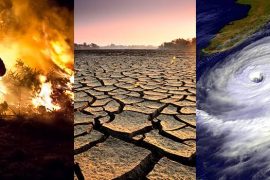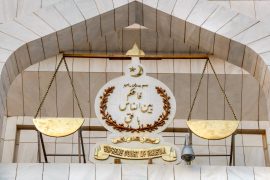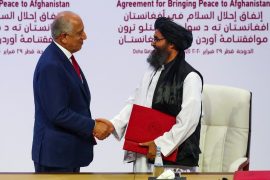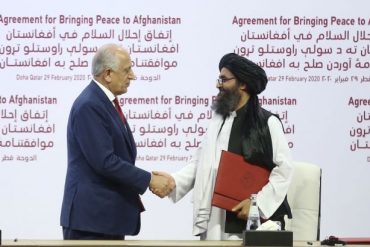STRAIGHT TALK by Hafeez Khan
Every language and culture has sayings that summarize a broad topic in a few words. My default is Punjabi. Translation takes away a lot of spice, yet I will try to convey the essence depicting consequences of a conflict in Europe. “A fight amongst wild boars destroys the valuable sugarcane.” I refer to the situation prevailing in Ukraine for the last few months.
Ukraine’s eastern, northern and southern borders have been encircled by Russian forces with over 150,000 troops, and miles upon miles of military hardware. It was done during the winter freeze that permits mobility of heavy equipment. Once the spring thaw comes, the grounds become slushy and difficult to navigate. Whatever has to happen has a time limit of a few more weeks.
The media war from all sides is in full swing. Western sources predict an imminent breakout of hostilities. Concerned heads of states are reaching out to President Putin to find a negotiated resolution. President Biden has been front and center of these efforts, so far without a breakthrough.
What is at the heart of this flare-up? Ukraine’s possibility of becoming a NATO member. Presently NATO has 30 members accumulated over a period of time. It started in March 1947 when France and UK signed the Treaty of Dunkirk to offer joint defense against any attacks from Germany or USSR. Its scope expanded through signing of North Atlantic Treaty in April 1949. It brought USA, Canada, and most Western European countries into the fold. Its objective – any member threatened would get a mutual defense response.
NATO’s membership expanded to include Turkey, Greece, and West Germany in the 50’s; Spain in 1982; East Germany in 1990. After the breakup of USSR, 14 former Soviet states joined NATO in 1997. It has created a formidable ring of defense against any threat that could originate from the East. Three states are aspiring to join NATO. They are Ukraine, Bosnia and Georgia. Headquartered in Brussels, NATO’s stated position is that they have an open door policy where aspiring States can become members upon the invitation of North Atlantic Council. Aspirants have to meet certain political, economic and military goals. Fundamentally, the members should have the ability to contribute to become beneficiaries of a joint defense.
Ukraine and Georgia are the easternmost European countries facing Russia. They have a long border with Russia and its ally Belarus. President Putin has repeatedly stated that dismemberment of USSR was the biggest debacle of the 20th century. Ukraine was the crown jewel that was lost as result of this event. He is steeped in the grand Russian Empire tradition which was honed by his KGB background. Putin hails from Saint Petersburg, home of the Russian Czars. He has a keen desire to resurrect the Russian influence of yesteryears and control Ukraine as a buffer against NATO, like Belarus.
Ukraine is a nation of nearly 40 million people. 83% have homogenous Ukrainian descent. 17% are ethnic Russians mostly residing in the southeastern part of the country. Since its independence from USSR in December 1991, Ukraine has swung between pro-Russian and pro-West Governments. Ukrainians have displayed a fiercely independent streak in asserting their will against rulers attempting to go against popular sentiment. A vast majority of this vibrant nation of folk music lovers have aligned with a pro-West thinking. Their Government is pursuing steps required to become members of EU and eventually become a part of NATO. A position that is not acceptable to President Putin.
In 2014 Russia, with the support of ethnic Russians, was able to invade and annex the Crimean Peninsula of Ukraine. It was a very well orchestrated plan executed flawlessly. Crimean Republic is now squarely part of Russian sphere of influence. It also started an insurrection in Southeast Ukraine that can serve as a flashpoint.
With the lines drawn so deep and diplomatic efforts floundering, the prospects of an invasion increase by the day. An invasion of Ukraine will trigger response from NATO. It would be met with crippling sanctions on Russia. Thus far NATO’s forces are deployed along the Western borders of Ukraine. They have stopped short of physical intervention. However when the opposing sides possess huge nuclear arsenals and technologically sophisticated hardware; physical non-intervention is no guarantee of war being less damaging.
The economic damage will be more devastating than the pandemic. Oil and energy prices will go through the roof. Europe, especially Germany is heavily dependent on Russian gas. The Nord Stream 2 pipeline through the Baltic Sea will be blocked. Its consequences will be far reaching. Other sanctions could lead to disrupting Russia’s ability to access banking channels as we know them. Pakistan is already reeling from the spike in oil prices. A steep rise in these prices could prove to be back breaking.
A conflict between global powers will prove to be debilitating for the fragile developing world. The conflict is over the future possibility of Ukraine becoming a NATO member. Thus far neither side has blinked. If the rhetoric continues at the same levels; any small incident could spark the most dangerous conflict since World War II. Neither side stands to gain. The whole world will lose. Diplomatic settlement is the only option; wars fought over emotions or egos would be a huge scar for all humanity.





